
St. Mary's Catholic Primary School
Safeguarding
Please find below the Pupil policy on safeguarding.
Feeling safe and happy at school
At St Mary’s Primary School, we want to make sure that you feel looked after, safe and happy when you are in and out of school. Sometimes we don’t know if something bad is happening, so you need to tell us.
This policy looks at child-on-child abuse and bullying, and what you can do when you feel you are being abused or bullied, or when you notice someone else being abused or bullied. We can help you by:
- Teaching you what child-on-child abuse is.
- Teaching you what to do if you feel like you are being abused, or if someone else is being abused.
- Making sure you know the grown-ups you can speak to if you are worried.
What is child-on-child bullying and abuse?
 A peer is someone who might be your friend, a child at school with you, or another child you may know.
A peer is someone who might be your friend, a child at school with you, or another child you may know.
Abuse is something which usually physically or emotionally hurts another person by using behaviour that is meant to scare, hurt or upset that person.
Sometimes, it can be hard to know when abuse is happening, because not all abuse will hurt, scare or upset you, and you might not know it is happening. It’s really important you know when you are being abused so we can make sure it stops.
There are lots of different types of abuse. It is important you know what these types of abuse are so you know what to do if you see them.
Bullying
Bullying can be different things, and isn’t just hitting or kicking another person.
Emotional bullying is hurting someone’s feelings, leaving them out or bossing them about.
Physical bullying is punching, kicking, spitting, hitting or pushing someone.
Verbal bullying is teasing someone, calling them names or using rude hand signs. People can also use verbal bullying to be racist or homophobic.
Racist means bullying someone because of their skin colour, race or what they believe in.
Homophobic means bullying someone because of their gender or sexuality; calling someone gay or lesbian to hurt their feelings would be homophobic.
Sexist means bullying someone because of their sex (whether they are a boy or a girl).
Cyber bullying involves sending horrid messages over the internet or by text message. Bullying can be done through another person, by one person sending another person to say nasty things.
Sexting
 This is sending inappropriate pictures, videos or messages – they can sometimes be called ‘nude pics’, ‘rude pics’ or ‘nude selfies’, but can also be rude messages. Pressuring someone into sending these pictures, videos and messages is abuse.
This is sending inappropriate pictures, videos or messages – they can sometimes be called ‘nude pics’, ‘rude pics’ or ‘nude selfies’, but can also be rude messages. Pressuring someone into sending these pictures, videos and messages is abuse.
Even if you are not the person who is sending them, it is illegal to have these kind of pictures or videos of a person if they are under 18 years old.
Sexual harassment
 Sometimes, people can act sexually towards others and it might make them feel uncomfortable.
Sometimes, people can act sexually towards others and it might make them feel uncomfortable.
This can happen online, on social media, through messages and face-to-face.
It might make someone feel scared, embarrassed, uncomfortable or upset.
It could be:
- Someone making sexual comments, like telling sexual stories, saying rude things or saying sexual things about someone’s appearance or clothes.
- Calling someone sexual names.
- Sexual jokes or teasing.
- Being physical, like touching which makes you feel uncomfortable, messing with your clothes, or
showing pictures or drawings which are of a sexual nature.
- Being sexual online, like sharing sexual pictures and videos, or posting sexual comments on social media.
- It might also be sexual threats or pushing you to do something sexually that you don’t want to or aren’t ready for.
Relationships
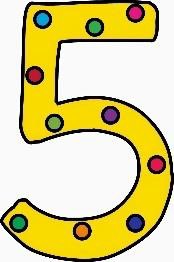 Any relationship you have should be good and happy.
Any relationship you have should be good and happy.
A bad relationship might make someone feel scared, confused, worried and even unsafe. It’s really important that you know the difference between a good relationship and a bad relationship.
Good relationships
- You are comfortable around that person.
- You can be honest with that person.
- You can say how you feel, what you are thinking and you listen to each other.
- You support each other and treat each other nicely.
- You feel safe.
- You trust that person.
- You are equal – you don’t boss each other around or tell each other what to do.
- You feel looked after.
Bad relationships
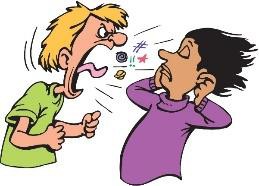 The person might push you, hit you or destroy your things.
The person might push you, hit you or destroy your things.- The person might tell you what to do, what to wear or who you can see.
- You might feel scared – they might say they will hurt you if you don’t do something. They might also say they will hurt you if you do something too.
- The person calls you names, makes you feel bad in front of other people and makes you feel bad about yourself.
- The person gets angry easily and you don’t know what will make them angry – it might make you feel nervous.
- The person might pressure you to do things you don’t want to or aren’t ready for, like sex, or using drugs and alcohol.
- The person might not take no for answer when you say you don’t want to do something.
How do I know if someone is being abused?
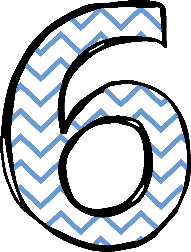 It might be hard for you to know if you are being abused and you might not really understand it is happening. It is important you can recognise when behaviour isn’t appropriate.
It might be hard for you to know if you are being abused and you might not really understand it is happening. It is important you can recognise when behaviour isn’t appropriate.
It’s also important that you can notice when someone else might be being abused. Some signs might be:
- Not going to school.
- Having injuries, like bruises.
- Feeling sad and down.
- Feeling like they can’t cope.
- Feeling withdrawn or shy.
- Getting headaches or stomach ache.
- Feeling nervous.
- Not being able to sleep, sleeping too much or getting nightmares.
- Feeling panicked.
- Using alcohol or drugs.
- Changing looks to look much older.
- Being abusive to someone else.
 Remember: you can feel all of these things too. Listen to how you feel, and know that these signs can mean you are being abused.
Remember: you can feel all of these things too. Listen to how you feel, and know that these signs can mean you are being abused.
What do I do if someone else is being abused?
 If you see someone else being abused, it is important that you help that person.
If you see someone else being abused, it is important that you help that person.
You should never walk way and ignore the problem if you see someone else being abused, because the person might keep upsetting them.
If you can, and it is safe to do so, tell the person abusing you to stop, but never get angry or hit them.
Tell a grown-up, such as a teacher, as soon as you’ve seen someone being abused. Grown-ups can stop the abuse and make that person feel happy again.
You should never feel scared to tell someone about abuse.
Sometimes, you might not see someone being abused, but you might be worried about them. Or, you might think they are being abused by someone you don’t know, or someone they have told you about. It’s really important you tell someone even if you are worried, but haven’t seen any abuse.
What do I do if I am being abused?
 The first thing you should do is tell someone you trust. This could be a family member, a friend or any adult in our school.
The first thing you should do is tell someone you trust. This could be a family member, a friend or any adult in our school.
You can also tell the person abusing you to leave you alone. If telling them to leave you alone would make you feel too scared or worried that they might hurt you, make sure you tell someone so they can help.
You should try not to:
- Do what the person says.
- Let what the person says or does upset you.
- Get angry or hit them.
Always remember that if you are being abused, it is not your fault and you are never alone.
You shouldn’t be scared to talk to someone if you are being abused. If you talk to a grown-up, we can make the abuse stop.
Who can I talk to?
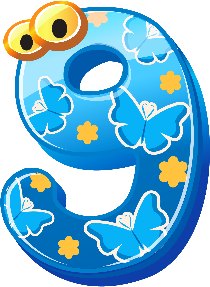
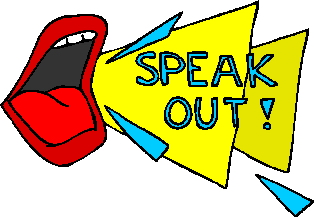 It is important you tell someone as soon as you are being abused, or you notice someone else being abused.
It is important you tell someone as soon as you are being abused, or you notice someone else being abused.
Speaking to someone like your mum, dad, carer or teacher will mean that we can make sure the abuse stops and doesn’t happen again. The list below shows some of the grown-ups at our school that you can speak to: Mrs Concannon, Mrs Vale, Mrs Morgan, Mr Causebrook, Mrs Clipson, your class teacher, a teaching assistant, a midday supervisor.
How can I help stop abuse from happening?
 We can all help stop abuse at our school by:
We can all help stop abuse at our school by:
- Making sure we understand how we should act towards others.
- Helping others when they are in need.
- Being kind, friendly and respectful to others.
- Thinking about people’s feelings before we say or do something.
- Taking part in school activities, like assemblies, PSHE lessons and circle time, which talk about child-on-child abuse.
- Talking to someone when we are worried.
You should know that abuse is never OK and it is serious. It is not funny, or part of growing up. If you abuse someone, you will get into trouble.